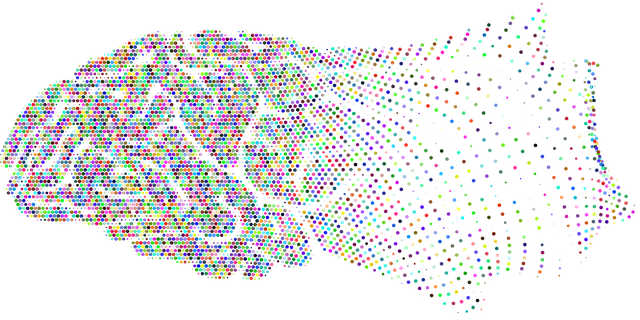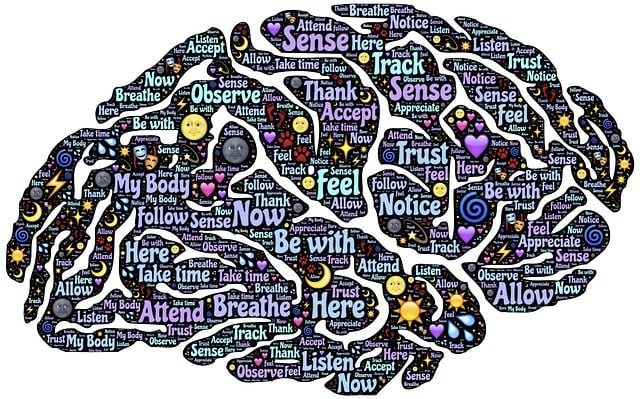This text explores the power of data in understanding mental health challenges, using Lakewood Chronic Pain Therapy as a case study. It highlights diverse data sources and collection methods, emphasizing the importance of preprocessing for accurate analysis. Advanced statistical tools identify trends, like the link between limited emotional healing and chronic pain. Interpreting these results leads to personalized treatment strategies, benefiting therapists and patients. Ethical considerations, including privacy and bias mitigation, are crucial, especially with sensitive patient information. The text promotes a data-driven approach to mental health care, showcasing its potential through Lakewood Chronic Pain Therapy's successful interventions and risk management practices.
Mental health data analysis plays a pivotal role in understanding and addressing psychological well-being, including conditions like chronic pain. In this comprehensive guide, we explore the process of analyzing and interpreting mental health data, from understanding key sources and preprocessing techniques to advanced trend analysis and ethical considerations.
Discover how methods such as those employed by Lakewood Chronic Pain Therapy centers can leverage data insights for improved patient care and outcomes.
- Understanding Mental Health Data: Collection and Sources
- Preprocessing and Cleaning Mental Health Data
- Techniques for Analyzing Mental Health Trends
- Interpreting Results: Insights and Applications
- Ethical Considerations in Mental Health Data Analysis
Understanding Mental Health Data: Collection and Sources

Understanding Mental Health Data begins with recognizing its diverse sources and methods of collection. Mental health professionals employ various tools to gather insights into individuals’ psychological well-being, including structured interviews, questionnaires, and observations. These data points can originate from clinical settings, research studies, or even digital platforms designed for mental health monitoring. For instance, Lakewood Chronic Pain Therapy centers often collect information through patient intake forms and ongoing therapy sessions, providing a wealth of qualitative and quantitative data.
Emotional Regulation, Mental Health Awareness, and Emotional Intelligence are key aspects that such data can shed light on. By analyzing trends in patient responses, therapists gain valuable insights into effective treatment modalities. This data-driven approach not only personalizes care but also contributes to the broader understanding of mental health issues, fostering a more informed and proactive society.
Preprocessing and Cleaning Mental Health Data

Before analyzing mental health data, a crucial step is preprocessing and cleaning. This involves preparing the raw data for analysis by handling missing values, outliers, and inconsistent formats. In the context of Lakewood Chronic Pain Therapy, this means ensuring patient records are complete and accurate, which is essential for effective treatment planning. Removing or imputing missing data points and identifying extreme values help maintain data integrity and reliability.
Additionally, categorizing data into meaningful groups and standardizing units facilitate analysis. This process mirrors the impact of public awareness campaigns in mental health, where educating communities on recognizing symptoms of conditions like anxiety can lead to earlier interventions. Similarly, community outreach program implementations improve data collection by reaching a broader population, enhancing the diversity and representativeness of datasets for more inclusive interpretations.
Techniques for Analyzing Mental Health Trends

In the realm of mental health data analysis, identifying trends and patterns is pivotal for effective treatment strategies. Advanced techniques leverage statistical tools and machine learning algorithms to uncover insights from vast datasets. Researchers can then correlate factors like demographics, lifestyle choices, and access to services with specific mental health conditions, such as depression or anxiety disorders. For instance, in Lakewood Chronic Pain Therapy, data analysis has shown that individuals with limited access to emotional healing processes and self-care practices are at a higher risk of developing chronic pain.
By examining these trends, healthcare professionals can tailor interventions to promote inner strength development. This involves designing targeted programs that incorporate evidence-based practices, such as cognitive-behavioral therapy, mindfulness techniques, and support groups. Understanding the interplay between various factors enables more personalized care, ultimately enhancing the effectiveness of treatment plans for mental health conditions like chronic pain.
Interpreting Results: Insights and Applications

When analyzing mental health data, particularly focusing on conditions like chronic pain as seen in Lakewood Chronic Pain Therapy, interpreting results goes beyond numbers and percentages. It involves translating raw data into actionable insights that can enhance treatment plans and patient outcomes. By employing statistical methods and clinical expertise, professionals can identify trends, correlations, and patterns within the data. For instance, certain self-awareness exercises or conflict resolution techniques might emerge as effective tools in managing chronic pain, revealed through consistent application of these practices among a patient population.
These insights have immediate applications in clinical settings. Therapists can tailor their approaches based on data-driven evidence, incorporating specific strategies like enhanced self-awareness or depression prevention techniques to address unique needs of their patients. Moreover, identifying successful interventions can lead to the development of standardized protocols, ensuring consistent and effective care for those seeking treatment for chronic pain conditions, such as those managed by Lakewood Chronic Pain Therapy.
Ethical Considerations in Mental Health Data Analysis

The ethical landscape of mental health data analysis is complex and multifaceted, particularly when considering the sensitive nature of patient information. As with any data-driven approach, ensuring confidentiality, informed consent, and data security is paramount. Mental health professionals must adhere to strict privacy regulations, such as HIPAA in the US, which safeguard personal details and limit data sharing. This is especially crucial for conditions like chronic pain, where individuals might face stigma and discrimination if their records fall into the wrong hands.
Moreover, the interpretation of mental health data raises ethical questions regarding bias, cultural sensitivity, and the potential misuse of insights. For instance, algorithms used in analysis must be fair and unbiased, avoiding stereotypes or generalizations that could negatively impact certain populations, including those seeking Lakewood Chronic Pain Therapy. Risk Management Planning for Mental Health Professionals is essential to navigate these challenges, ensuring both patient well-being and the responsible use of data while fostering initiatives like Depression Prevention and cultivating Emotional Intelligence to support holistic mental health care.
Mental health data analysis plays a pivotal role in understanding and addressing societal challenges, including chronic conditions like those managed by Lakewood Chronic Pain Therapy. By systematically collecting, preprocessing, and interpreting data, researchers can uncover valuable trends and insights. This article has explored these processes, from recognizing the importance of diverse data sources to the ethical considerations that guide responsible analysis. Through advanced techniques, such as identifying patterns in mental health trends, we can improve support systems and interventions, ultimately enhancing well-being outcomes for individuals seeking therapy.














